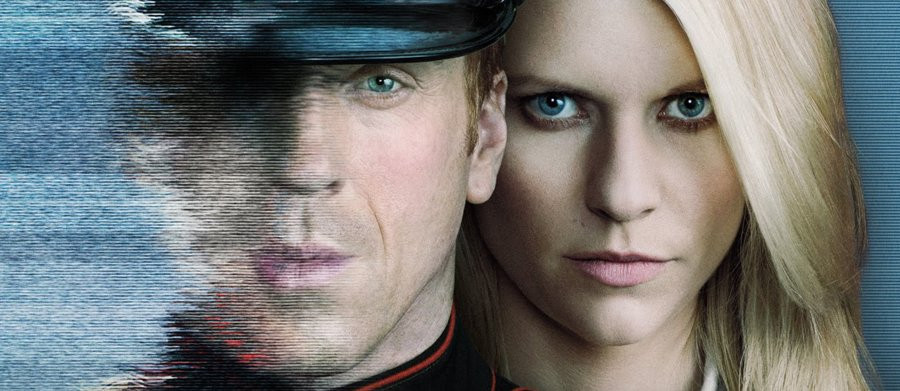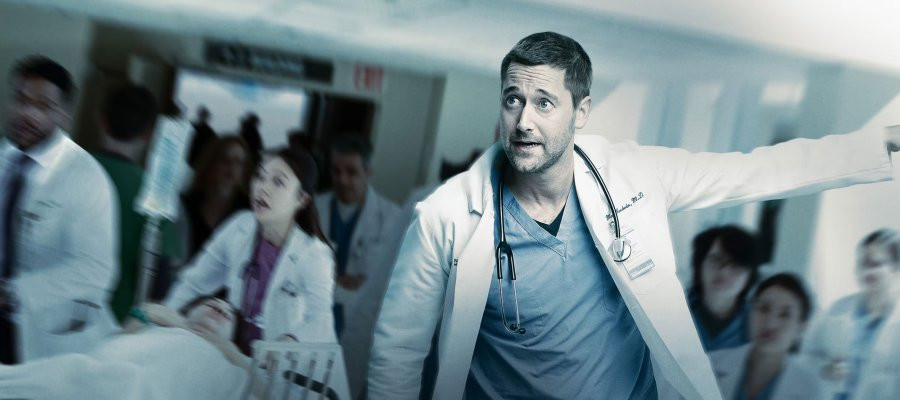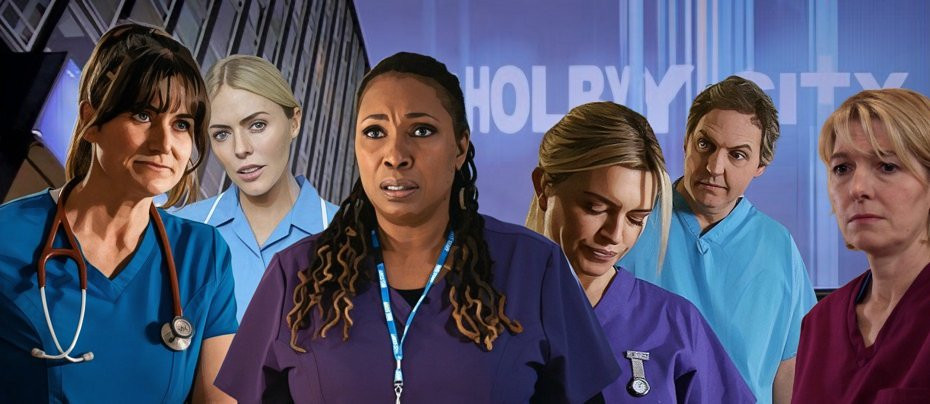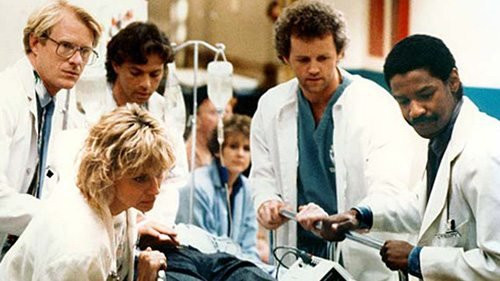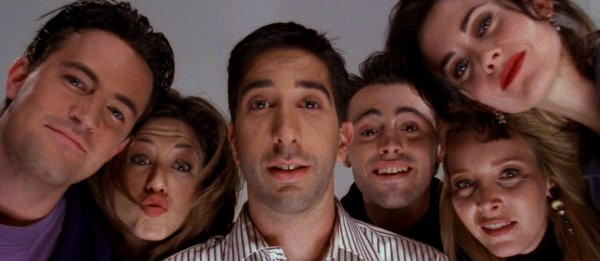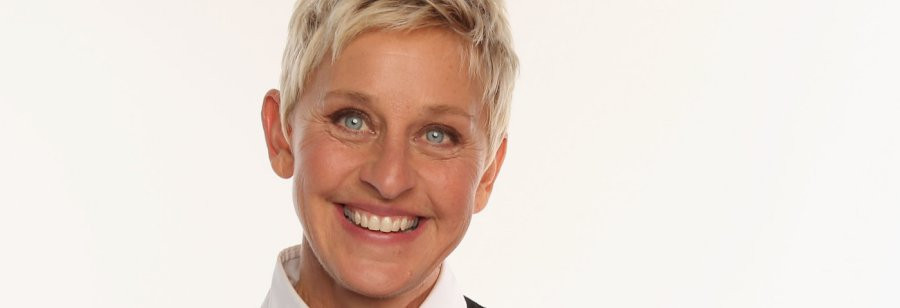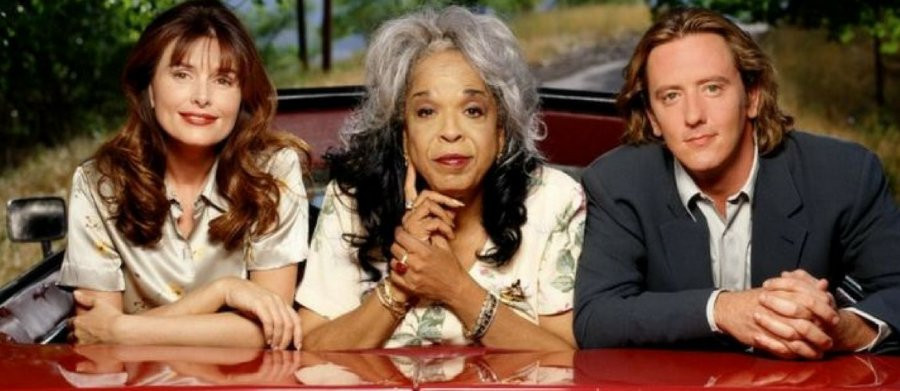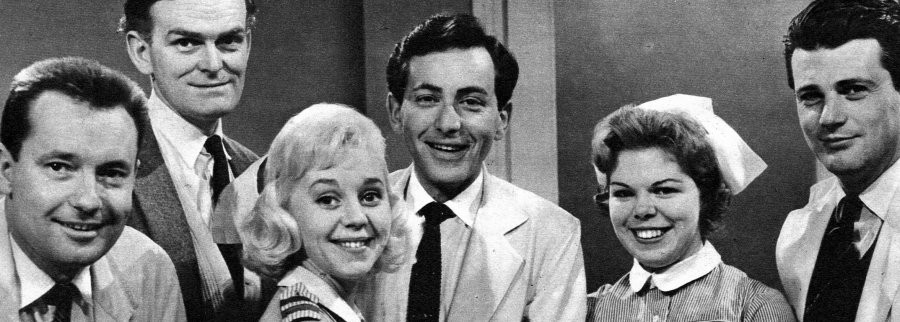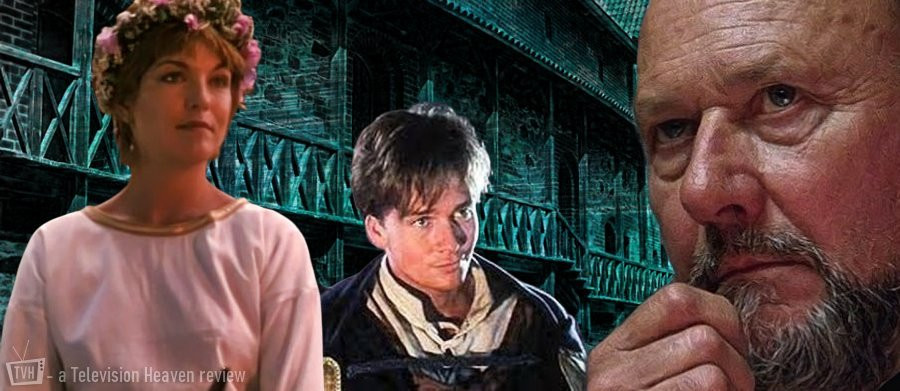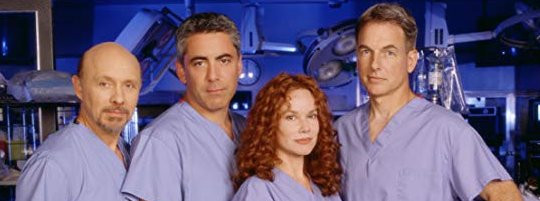
Chicago Hope
1994 - United StatesBoasting a large and consummately talented ensemble cast, Chicago Hope bears all the idiosyncratic, inventive, and characteristically offbeat hallmarks that have become instantly recognisable trademarks of David E. Kelley's creative direction—the same distinctive flair that informed his later success with Ally McBeal.
The series follows the often turbulent professional and personal lives of the staff at Chicago Hope Hospital, a prestigious and ultra-modern medical institution situated in America’s so-called "Second City." Like its more prominent rival ER, the drama is rooted in the high-stakes, emotionally charged world of modern medicine. Unfortunately, Chicago Hope had the misfortune of premiering directly opposite ER, a programme that rapidly became a ratings juggernaut. Coupled with the fact that its initial episodes leaned heavily into a serious and at times unrelentingly sombre tone, the show struggled at first to find a loyal and appreciative viewership.
In response to this early challenge, the creators began to recalibrate the show’s tone as the first season progressed. The introduction of younger, more laid-back characters brought a welcome shift, injecting a more human, occasionally humorous dimension into the series. This tonal adjustment allowed the show to better navigate the often complex ethical and moral quandaries that formed the backbone of its richly woven narrative arcs. From the second series onwards, this strategic evolution began to bear fruit—audience engagement increased steadily, and the programme started to garner both critical praise and a committed fan base.
While the consistently high standard of writing and the thought-provoking nature of the storylines are commendable, it is the uniformly excellent performances of the ensemble cast that truly elevate Chicago Hope above standard television fare. Each actor brings a palpable sense of depth and authenticity to their roles, breathing life into a range of distinctive and well-realised characters that form the beating heart of the hospital.
At the centre of it all is Hector Elizondo’s pitch-perfect portrayal of Dr Phillip Watters, the beleaguered yet stoically composed Chief of Staff. Tasked with the unenviable responsibility of juggling internal hospital politics, the varied desires and oversized egos of his brilliant but often headstrong colleagues, and the ever-present pressure of external scrutiny, Elizondo’s performance provides the emotional and moral anchor of the series.
Among the ensemble are some of the finest talents in American acting. Adam Arkin shines as Dr Aaron Shutt, a globally respected neurosurgeon who makes a triumphant return to surgery after a lengthy period of rehabilitation following a personal battle with a brain injury—an ironic twist that temporarily saw him retrain in psychiatry. Equally compelling is the contribution of stage and screen veteran Mandy Patinkin, who portrays the mercurial and deeply troubled surgical prodigy Dr Jeffrey Geiger. Following a significant hiatus from the series, Geiger returns in a vital new capacity as Chairman of the hospital’s Board, where he is tasked with the delicate balancing act of maintaining the institution’s clinical excellence while ensuring its financial viability.
Though somewhat unfairly overshadowed by the cultural phenomenon that was ER, Chicago Hope more than held its own as a drama of exceptional calibre. Over its run, it was recognised with five Emmy Awards and consistently delivered television that was not only emotionally resonant and intellectually engaging but also supremely well-acted and beautifully produced.
Seen this show? How do you rate it?
Seen this show? How do you rate it?
Published on December 3rd, 2018. Written by Laurence Marcus for Television Heaven.


